About Harbor Hall Petosky Residential
Harbor Hall’s Petosky Residential treatment center is located in Petoskey, Michigan, minutes from Little Traverse Bay. This is a state of the art facility that welcomes men and women who are ready to start recovery from a drug, alcohol, or substance use disorder. They accept self pay, commercial insurance, and Medicaid.
Care is rooted in evidence based practices, but there’s a robust recovery approach that’s centered around community. You’ll be encouraged to build a network of support with the peers you live with and your treatment team.
This sense of community goes beyond just connecting with people in the Harbor Hall campus. There will be times when you might venture out into the community, engage in community service efforts, and just learn how to exist in a society in a way that’s productive and goes beyond just self-fulfillment.
If you have current existing mental health struggles accompanying your substance use disorder, those struggles will be addressed as well. You really get a whole person approach to care here so that you can begin creating a mental framework for a sober life. You’ll learn how to think positively, how to manage triggers, and how to use specific strategies to help combat relapse.
The Harbor Hall campus itself is beautiful. It’s well maintained, within walking distance to the bay, and has gender separated facilities so that you start recovery with peace of mind.
You can expect to find comfortable living spaces here. There are shared bedrooms, walking areas outdoors, and amenities like game rooms and workout facilities. Laundry services are free, but you’ll have to bring your own detergent. Smoking cigarettes is allowed, but not vaping.
The common areas are welcoming and encourage peers to enjoy one another’s company. When it’s time for individual or group counseling sessions, you’ll work with dedicated staff passionate about helping you find your footing in a sober lifestyle.
Addiction Treatment Programs
Alcohol Rehab
The goal of an alcohol rehab in Michigan is to give you the tools and skills you need to achieve long-term recovery. Whether you need detox, inpatient treatment, or outpatient care, an alcohol program will help you build a new lifestyle based on healthy coping mechanisms, better relationships, and a new way of thinking about life.
Dual Diagnosis
Mental health concerns and substance use are often linked, which is known as a dual diagnosis. The right rehab in Michigan can help you break free. Whether you need detox, inpatient treatment, or outpatient care, a dual diagnosis program will offer specific support for your mental health needs alongside traditional substance use treatment.
Opioid Addiction
In Michigan, rehab provides a combination of therapy and education to help clients overcome opioid addiction. During this program, you’ll work with professional counselors to deal with the psychological, emotional, and physical issues that opioid misuse can cause. Over time, you’ll learn how to live without substance use long-term.
Young Adult Rehab
Young people need unique support, and a young adult rehab in Michigan can help them learn new life skills while overcoming addiction. Whether you need detox, inpatient treatment, or outpatient care, a young adult program will offer specific support for your emotional, mental, and social needs.
Adult Program
An adult program in Michigan addresses the recovery needs of clients in this life stage and gives them the tools they need to succeed. Whether you need detox, inpatient treatment, or outpatient care, an adult program will offer specific support for your emotional, mental, and social needs.
Men's Rehab
Men’s rehab programs in Michigan address the unique needs of men in a safe, gender-specific environment. Whether you need detox, inpatient treatment, or outpatient care, a men’s program will offer specific support for your emotional, mental, and social needs.
Insurance Coverage
Medicaid
When looking for ways to pay for rehab in Michigan, consider Medicaid if you are struggling to afford treatment. You’ll need to choose a program that accepts Medicaid as payment, and you can access multiple levels of care, including detox, inpatient, and outpatient treatment.
Self-pay options
There are many options to pay for rehab in Michigan, including self-pay. This gives you maximum freedom to choose the treatment center you like. You simply use a medical loan, write a check, or send money electronically to the center. Different types of care may have different fee structures.
Financial aid
In Michigan, financial aid programs can be a great option when it comes to paying for rehab, if you qualify. You may be able to find aid through community groups in your area, and individual treatment centers may offer grants and scholarships as well.
Private insurance
If you’re looking for ways to pay for rehab in Michigan, consider using your private insurance plan. You’ll want to find a treatment center that’s in-network with your coverage and contact the insurer to find out details about coverage and out-of-pocket costs.
Levels of Care
- 1
Detox Treatment
Don’t be afraid of detox in Michigan. It’s the first step toward building a new life you love. Most detox programs last around one week, although some are longer. You will generally receive medical treatment for withdrawal symptoms as well as treatment planning for the next stage of rehab.
- 2
Inpatient Rehab
Inpatient treatment in Michigan allows clients to live full-time in the facility while getting the care they need. During inpatient treatment, clients are able to work on their recovery through counseling, activities, and holistic treatment like mindfulness, art therapy, and more.
- 3
Outpatient Rehab
If you want to attend school or work during rehab, consider outpatient treatment in Michigan. You’ll live independently except when you’re attending rehab. Building a new life for yourself takes time, and it’s important to have enough support throughout the process. Outpatient treatment allows you to have more intensive or less intensive help, depending on your needs.
- 4
Aftercare Support
Aftercare in Michigan is focused on helping you access the resources and ongoing support you need to stay sober long-term. Some aftercare programs will help you connect to community resources and social services in your area, from housing to healthcare to financial assistance.
- 5
Sober Living Homes
During sober living in Michigan, clients will receive ongoing support that makes it easier to practice their new habits and maintain recovery. Sober living is a place where you can practice your new life skills and begin to work toward an independent, substance-free life.
Therapies
Cognitive Behavior Therapy
Cognitive behavioral therapy in Michigan gives you tools to challenge your thinking patterns. Substance use treatment includes detox, inpatient treatment, and outpatient care, and CBT may be a part of each of these stages. The goal is to help clients identify distorted thinking, replace it with rational thinking, and change their responses accordingly.
Dialectical Behavior Therapy
Dialectical behavioral therapy in Michigan gives you tools to learn new behaviors to improve and change your life. Substance use treatment includes detox, inpatient treatment, and outpatient care, and DBT may be a part of each of these stages. The goal is to help clients develop the skills they need to solve the problems they face without substance use.
Experiential Therapy
If you’re struggling with substance use in Michigan, experiential therapy can help you work through emotions so you can make positive changes. By participating in art, music, or physical activities like hiking, you can learn to face internal issues without turning to substance use. Instead, you’ll develop healthy coping mechanisms.
Family Therapy
Overcoming substance use is easier if you have support from your loved ones. During family therapy in Michigan, you can address challenging relationships and family conflicts to restore peace and make recovery easier. There are several goals in family therapy. Some sessions may be focused on specific past events, while others address current broken relationships or how good intentions have gone astray. Over time, family relationships can be restored, making recovery easier.
Group Therapy
Overcoming substance use is easier if you’re not alone. During group therapy in Michigan, you’ll hear others’ perspectives and get the support you need. Substance use treatment includes detox, inpatient treatment, and outpatient care, and group therapy may be a part of each of these stages. The goal is to help clients support each other, provide accountability, and relate to each other’s experiences.
Individual Therapy
Individual therapy in Michigan helps clients overcome substance use by providing individualized, confidential support. Some of the topics covered in individual therapy include developing healthy coping skills, addressing past events that may have played a part in substance use, and building a support network.
Rational Behavioral Therapy
In Michigan, rational behavior therapy is one of the evidence-based approaches widely used in addiction treatment. This therapy may include role-playing to help you imagine specific situations that might trigger a negative reaction so you can practice challenging irrational beliefs and choosing a more positive response.
Trauma Therapy
Many people with addiction issues in Michigan use substances to decrease difficult feelings such as guilt, shame, fear, and more. Trauma-informed therapy can help you understand where these feelings come from and how to deal with them in a better way. Both inpatient treatment and outpatient care can include trauma-informed therapy, which helps you create a feeling of safety, access peer support, embrace the validity of your feelings, and create healthy coping skills.
Accreditations
Location
Contact Harbor Hall Petosky Residential
Top Drug Rehab Centers in Michigan
-
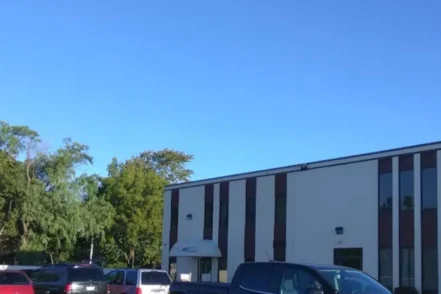 Michigan
MichiganBio Medical Behavioral Healthcare Roseville
31581 Gratiot Avenue, Suite 100 Roseville, Michigan 48066
-
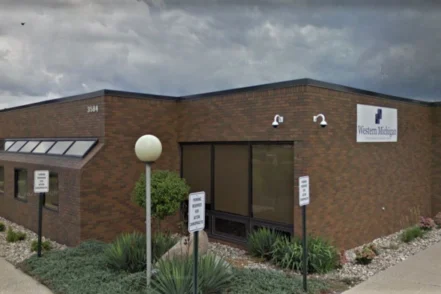 Michigan
MichiganWestern Michigan Comprehensive Treatment Center
3584 Fairlanes Avenue Sw, Suite 2 Grandville Gaastra, Michigan 49418
-
 Michigan
MichiganBear River Health at Walloon Lake
2329 Center Street Boyne Falls, Michigan 49713
-
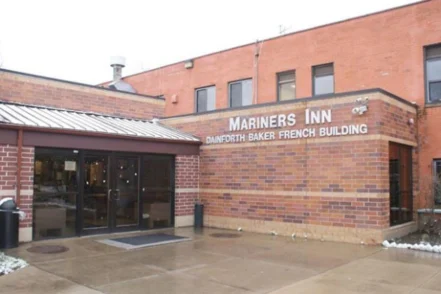 Michigan
MichiganMariners Inn
445 Ledyard Street Detroit, Michigan 48201
-
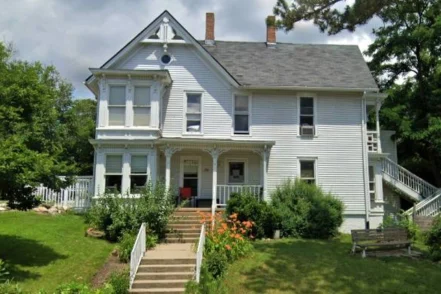 Michigan
MichiganDawn Farm Spera
502 West Huron Street Ann Arbor, Michigan 48103
-
 Michigan
MichiganAscension Brighton Center for Recovery
12851 Grand River Road Brighton, Michigan 48116
-
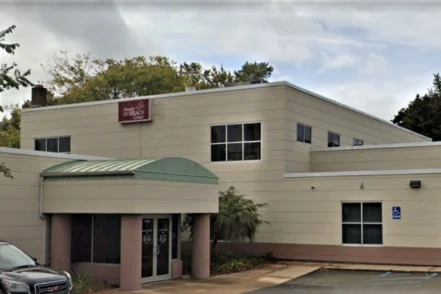 Michigan
MichiganFamily Outreach Center Grand Rapids
1939 South Division Avenue Grand Rapids, Michigan 49507
-
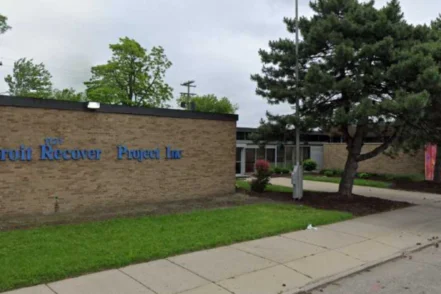 Michigan
MichiganDetroit Recovery Project Eastside Health and Wellness Recovery Resource Center
1121 East McNichols Road Detroit, Michigan 48203
-
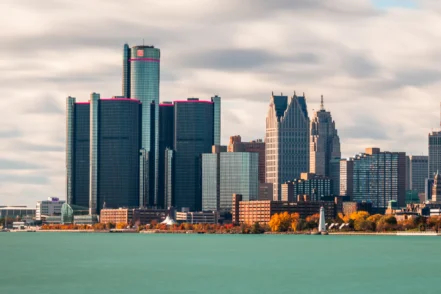 Michigan
MichiganQuality Behavioral Health Detroit
745 East Grand Boulevard Detroit, Michigan 48207
-
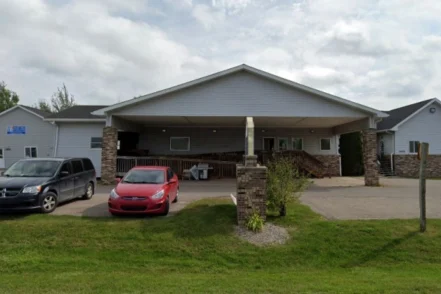 Michigan
MichiganGreat Lakes Recovery Centers Womens New Hope House
2655 Ashmun Street Sault Ste. Marie, Michigan 49783
-
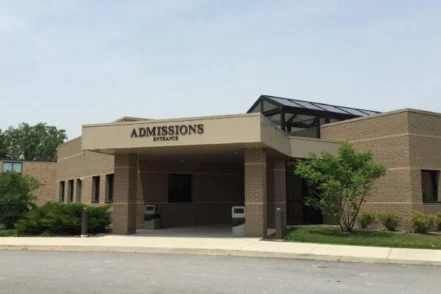 Michigan
MichiganSacred Heart Rehabilitation Center Richmond
400 Stoddard Road Richmond, Michigan 48062
-
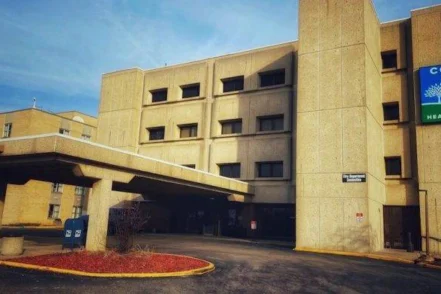 Michigan
MichiganAdvanced Rapid Detox
4777 East Outer Drive, Suite 2 West Detroit, Michigan 48234
-
 Michigan
MichiganCommunity Medical Services
25639 Ford Road Dearborn Heights, Michigan 48127
-
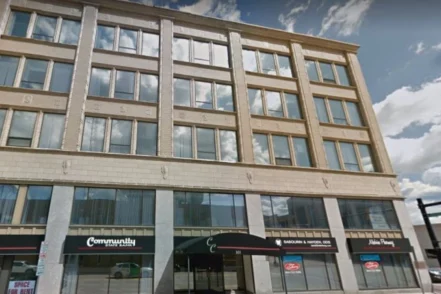 Michigan
MichiganSacred Heart Rehabilitation Center Saginaw
301 East Genesee Street Saginaw, Michigan 48607


